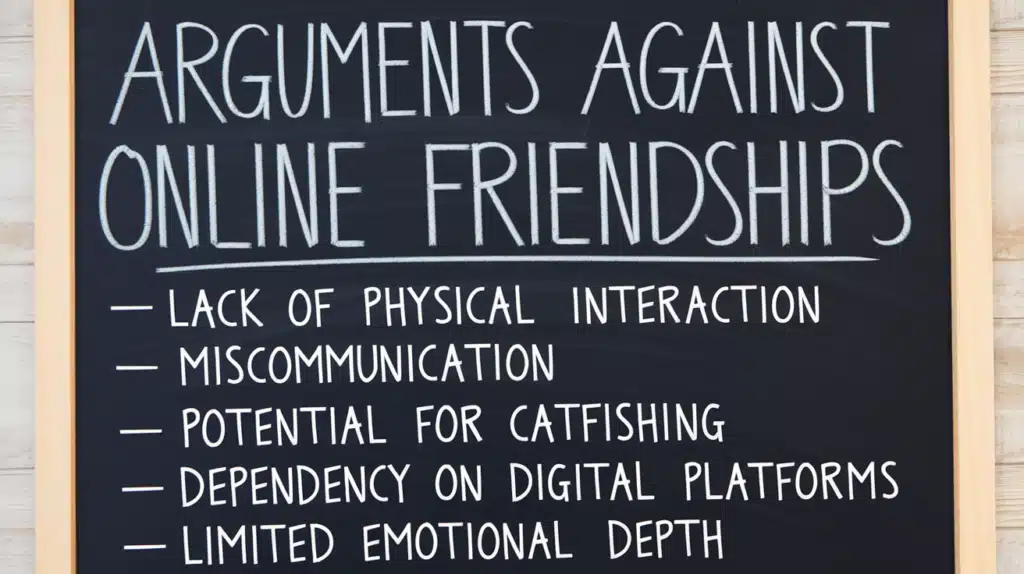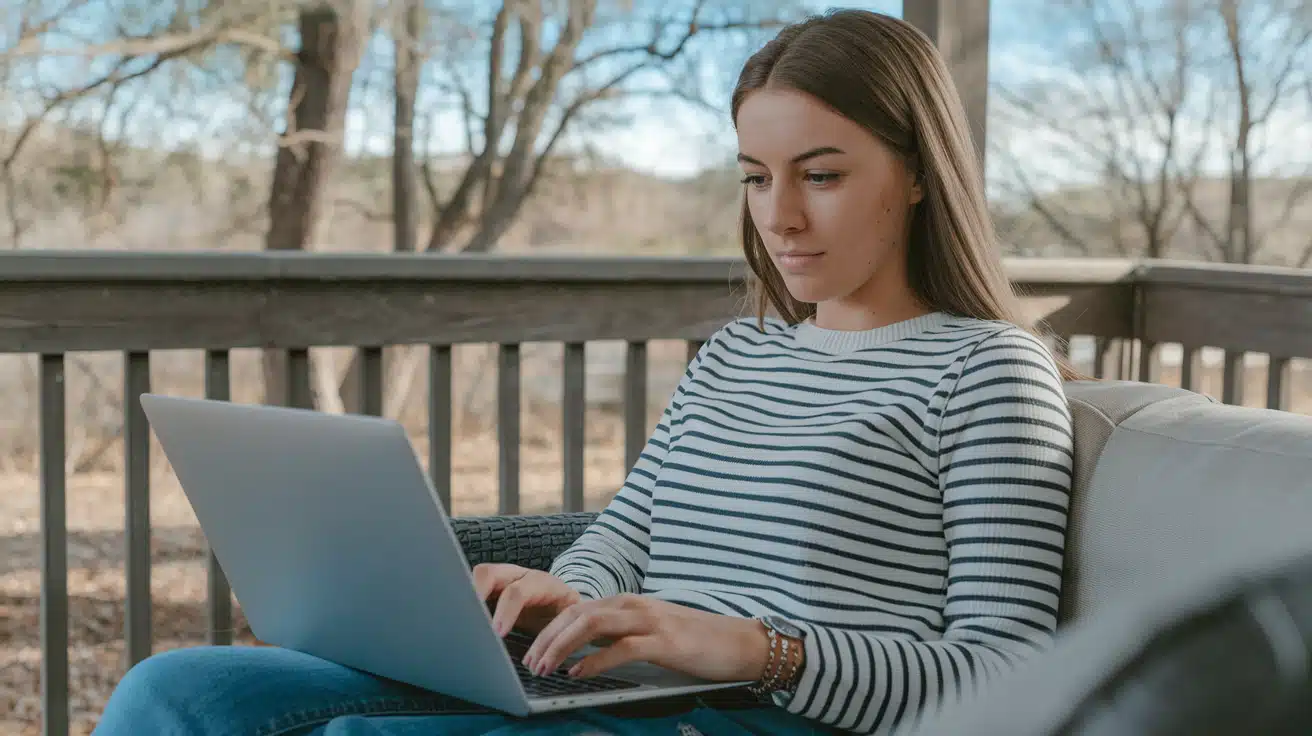The hidden truth about are online friends real friends lies in data that most researchers avoid discussing publicly.
Digital relationships follow identical neurological pathways to physical ones – the brain can’t distinguish between online and in-person emotional support.
Most people dismiss virtual connections as shallow substitutes for “real” friends, but science contradicts this assumption. Research reveals that emotional reciprocity, not physical presence, determines friendship depth.
This investigation finds out the surprising science behind why some digital bonds become as powerful as lifelong friendships, while others remain superficial. The answer challenges what conventional friendship “experts” have claimed for decades.
What Defines a “Real” Friendship?
A “real” friendship is a special relationship between two people who truly care about each other.
Real friends make you feel happy, safe, and accepted for who you are. They enjoy spending time with you and are there for you in both good and bad times.
Qualities of a Real Friend
- Kindness: Real friends are kind and treat you with respect.
- Honesty: They tell you the truth and don’t hide things from you.
- Trust: You can trust a real friend with your secrets and feelings.
- Support: Real friends help you when you’re sad and cheer you on when you’re happy.
- Listening: They listen to you and care about what you say.
- Respect: Real friends respect your opinions and differences.
Real friendship is built on kindness, trust, honesty, and support. Both friends care for and respect each other, making the friendship strong and lasting.
Are Online Friends Real Friends?

In today’s world, many people are making real friends online. This means they meet and talk to others through the internet, using phones, computers, or tablets.
These online friendships are becoming a normal part of life.
You can make online friends in many ways. Some people meet through games, while others find friends on social media apps like Instagram, TikTok, or through forums and chat groups.
These friendships often begin because both people enjoy the same things, like music, movies, or hobbies.
Even though online friends don’t meet face-to-face at first, they still talk, laugh, share stories, and help each other through hard times. That’s what makes a friendship real: care, support, and trust.
For people who are shy, live far away, or have trouble meeting others in person, online friendships are a great way to feel less lonely. They help people feel seen, heard, and included.
Today, online friendships are not just common, they are real and meaningful. Many people keep these friendships for years, and some even meet in person one day.
Benefits of Online Friendships
Online friendships have many good points that make them special and helpful:
- Meet People from Anywhere: You can make friends with people from all over the world. This helps you learn about new cultures and ideas.
- Find Friends with Similar Interests: It’s easy to find people online who like the same things you do, such as games, music, or books.
- Good for Shy People: If you are shy, it can feel easier to talk to people online than in person.
- Support Anytime: Online friends can chat with you at any time, even if they live far away or in a different time zone.
- Learn New Things: Online friends can teach you about different opinions, places, and ways of life.
- Easy to Stay in Touch: You can message, call, or video chat with online friends easily, so you don’t lose contact.
- Be Yourself: Some people feel more comfortable being themselves online, without worrying about what others think.
Online friendships can make you feel happy, supported, and included, just like friendships in real life.
Arguments Against Online Friendships

While many people believe online friends are real friends, some are not so sure.
These people are called skeptics; they question whether online friendships are truly the same as in-person ones. Let’s look at why some people feel this way.
1. No Face-to-Face Interaction
One big reason people doubt online friendships is because there’s no in-person contact. In real life, we use more than just words to talk—we use facial expressions, tone of voice, and body language.
Skeptics say that without seeing and hearing someone, it’s harder to truly understand how they feel.
For example, a joke might seem funny when said out loud, but could sound mean or confusing in a text message.
2. It’s Easy to Hide the Truth Online
Some people worry that online friends may not be honest about who they really are. It’s possible to use a fake name, age, or photo.
This makes it harder to trust someone, especially if you’ve never met them in person. Skeptics say this could lead to broken trust or even danger if someone is pretending to be someone else.
3. Misunderstandings Happen More Often
Because online chats don’t show emotion clearly, messages can be misunderstood. Without a voice or a face, it’s hard to know if someone is joking, upset, or serious.
This can lead to arguments or hurt feelings, even if no one meant to be rude. Skeptics believe that these small problems can stop a friendship from growing stronger.
4. Fewer Shared Experiences
In real-life friendships, people hang out, play sports, go to events, and make memories together. Skeptics say that online friendships can miss these special moments.
They believe that real friendship is built through doing things together in person, not just talking online.
5. Some Online Friends Disappear Quickly
Sometimes online friends stop talking without warning. Because there’s no school, work, or neighborhood connecting you, it’s easier for people to leave.
This makes skeptics feel that online friendships might not last as long or feel as dependable.
Online vs. In-Person Friendships
| Aspect | Online Friendships | In-Person Friendships |
|---|---|---|
| How You Talk | Text, voice messages, video calls, social apps | Face-to-face, talking in real time |
| Time Spent Together | Chat when both are online, often from different places | Hang out in person, share daily activities |
| Body Language & Tone | Harder to read emotions; may cause misunderstandings | Easier to see expressions, tone, and gestures |
| Building Trust | Takes longer; risk of fake profiles or dishonesty | Often easier to trust when you know them in real life |
| Support | Offers emotional support online | Offers emotional and physical support (like hugs) |
| Shared Activities | Play games, watch shows online, share memes | Go to events, eat together, do activities in person |
| Safety | Needs caution—be aware of scams or fake identities | Usually safer through known groups (school, neighbors) |
| Friendship Length | It can last for years if both make an effort | Often lasts through shared life stages and routines |
Navigating Risks in Digital Relationships
Making friends online can be fun and meaningful, but it’s important to stay safe. Not everyone online is honest, so being careful helps you enjoy your friendships without getting hurt.
Here are some tips to keep your digital relationships safe and healthy.
- Don’t Share Personal Information: Never give out your full name, home address, phone number, school name, or passwords. This helps protect you from people who may try to trick or harm you.
- Watch for Red Flags: If someone is asking too many personal questions, trying to get you to keep secrets, or making you feel uncomfortable, that’s a warning sign. Trust your gut—if something feels wrong, it probably is.
- Use Trusted Platforms: Chat on apps or websites that are known to be safe and have rules to protect users. Avoid unknown sites that don’t check who joins or what they post.
- Keep Adults in the Loop: Tell a parent, teacher, or trusted adult if something online makes you nervous or upset. They can help you figure out what to do next.
- Don’t Meet Strangers Alone: If you ever decide to meet an online friend in real life, never go alone. Always take a trusted adult and meet in a public place, like a park or coffee shop.
- Use Privacy Settings: Set your profiles to private so only people you know can see your posts and send you messages. This helps block strangers and keeps your info safe.
Stay Safe, Stay Connected
Online friendships can be real and rewarding, but safety should always come first. By staying smart and setting clear boundaries, you can enjoy your digital friendships without worry.
The Bottom Line
Online friendships are real relationships that offer genuine support and connection. The digital format doesn’t make them less valuable than face-to-face friendships.
So what’s next? Start treating your online friends with the same care you give offline ones. Check in regularly. Celebrate their wins and support them through challenges.
The key is balance. Online friends can connect you with people who truly understand your interests and values.
Want stronger digital bonds? Schedule regular video calls or send thoughtful messages. Small gestures make big differences.




